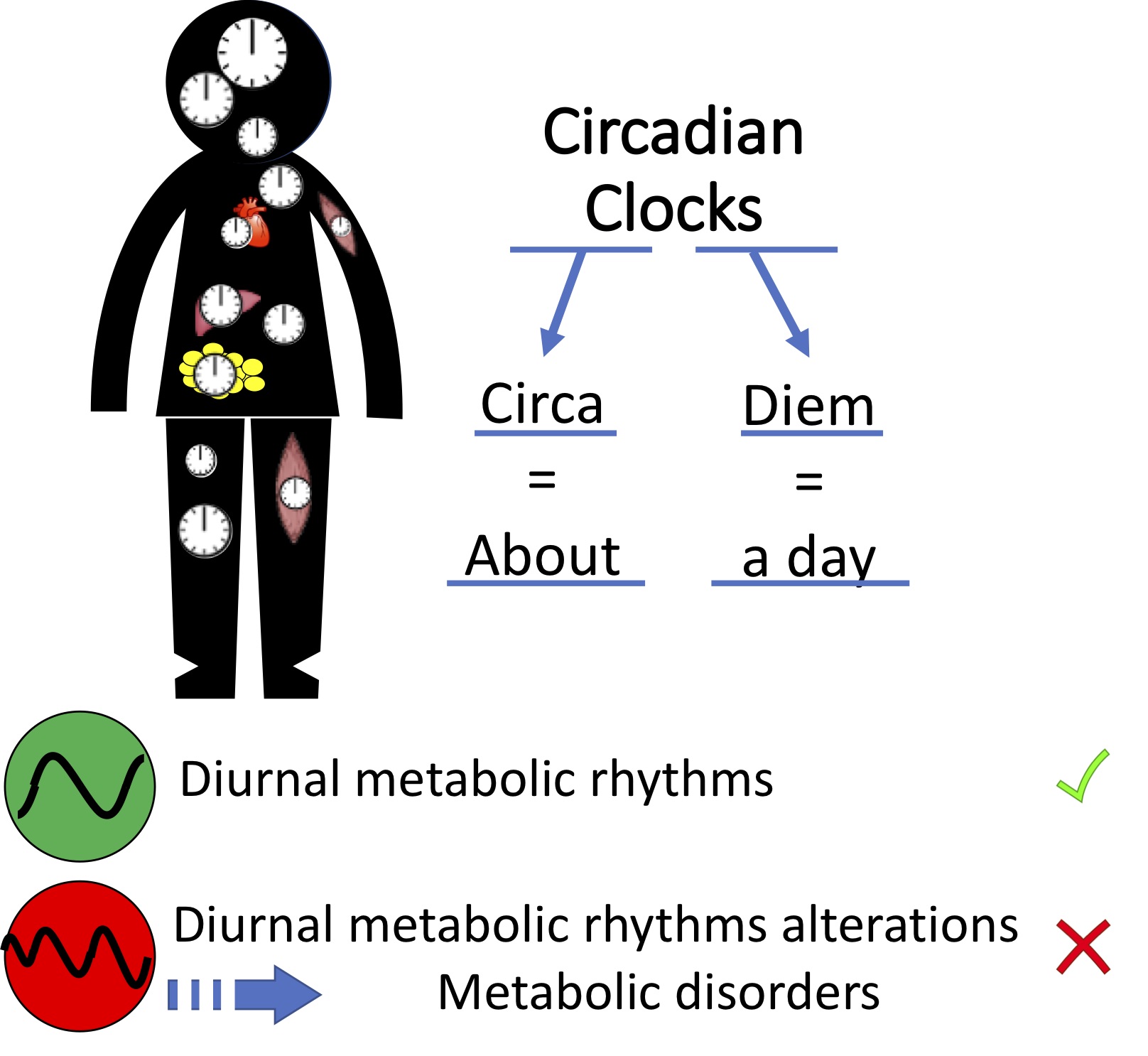
Academic staff
Daniel MAUVOISIN
Contact details
L'unité de recherche de l'institut du thorax Inserm UMR 1087/CNRS UMR 6291 IRS-UN - 8 quai Moncousu - BP 70721 44007 Nantes Cedex 1
- Phone
- 0228080010 (n° interne : 320010)
- Daniel.Mauvoisin@univ-nantes.fr
- Personal Website
- https://orcid.org/0000-0003-0571-0741
Research topics
Circadian (about a day) rhythms are central in health and diseases. They originate from the molecular circadian clock, an evolutionary conserved mechanism that anticipates daily environmental changes. In mammals, a hypothalamic pacemaker adjusts basic physiological functions to the night/day cycles, but peripheral organs also have an intrinsic circadian clock. The liver circadian clock, for instance, fine-tunes metabolism by supporting metabolic flexibility, the capacity to adapt fuel oxidation to fuel availability. In fact, abnormal feeding schedules impose a circadian misalignment contributing to metabolic diseases, but the molecular links remain elusive.
Common presentations of metabolic diseases are overweight and Non-Alcoholic Fatty Liver Disease (NAFLD). NAFLD implicates multiple cellular and molecular signaling pathways mostly under the control of the circadian clock. To this end, we have provided evidence that to adjust metabolism across daily cycles of energy intake, the circadian clock and feeding control the mitochondrial network and its quality control mechanisms (mitochondrial dynamics). A fused mitochondrial network enhances bioenergetic efficiency whereas fission limits the oxidative stress during nutrient overload. Of note, loss of this mechanism through genetic disruption of the hepatic circadian clock triggers fatty liver disease.
Our overarching goal is to discover novel therapeutic targets in metabolic diseases using a chronobiological approach. NAFLD prevalence is skyrocketing and solutions are needed. Specific post-translational modifications (PTMs) represent novel pathophysiological mechanisms to explore.

Main objectives:
- To identify proteins regulated diurnally by PTMs.
- To discover the molecular link between these PTMs, diurnal mitochondrial dynamics and the molecular circadian clock.
- To explore therapeutic potential of modulating these PTMs in the context of metabolic disease.





